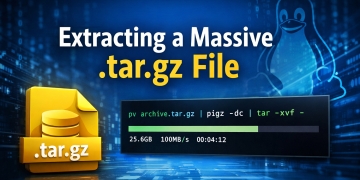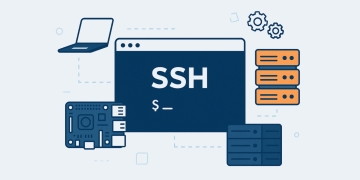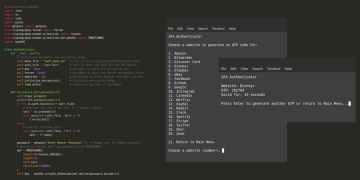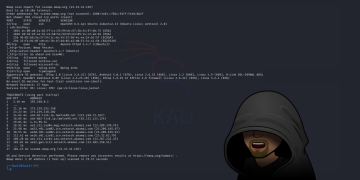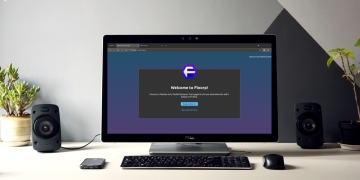Audio files come in a variety of formats, such as WAV, FLAC, AAC, and OGG. However, MP3 remains one of the most popular formats due to its balance between file size and audio quality. Converting various audio file formats to MP3 is a common task for many tech enthusiasts, developers, and audio professionals. Python, with its extensive libraries and ease of use, provides several tools to accomplish this task efficiently. This article will guide you through the process of converting audio files to MP3 using Python, covering various libraries, their installation, and practical code examples.
Why Convert to MP3?
MP3 (MPEG Audio Layer III) is widely used for several reasons:
Compatibility: MP3 is supported by almost all media players and devices. Whether you’re using a smartphone, a computer, a tablet, or a dedicated media player, you can be almost certain that it will be able to play MP3 files. This broad compatibility makes MP3 a reliable choice for sharing and distributing audio files.
Compression: MP3 files are compressed, reducing their size significantly while maintaining decent audio quality. This compression is achieved by removing frequencies that are less audible to human ears, resulting in a smaller file size without a noticeable loss in quality for most listeners. This makes MP3 ideal for storing large music collections or podcasts without consuming too much disk space.
Streaming: Due to its smaller size, MP3 is ideal for streaming audio over the internet. Services like Spotify, Apple Music, and various online radio stations often use MP3 to deliver audio content to users quickly and efficiently. The reduced file size means faster loading times and less bandwidth usage, which is crucial for both service providers and users with limited internet connections.
By converting audio files to MP3, you ensure that your audio content is easily accessible, efficiently stored, and ready for online streaming, making it a versatile and practical format for a wide range of applications.
Prerequisites
Before we jump into the conversion process, ensure you have the following prerequisites:
Python Installed: Make sure you have Python installed on your system. Python 3.6 or later is recommended to take advantage of the latest features and improvements. You can download and install Python from the official Python website.
Basic Knowledge of Python Programming: While the provided examples will be straightforward, a basic understanding of Python programming is essential. This includes familiarity with Python syntax, importing libraries, and running scripts.
Necessary Python Libraries: To perform audio conversion, you’ll need to install specific Python libraries. The primary libraries we’ll use are pydub and ffmpeg-python. pydub is a high-level audio processing library, while ffmpeg-python provides Python bindings for the powerful FFmpeg multimedia framework. Additionally, pydub depends on ffmpeg, so you’ll need to install ffmpeg on your system.
By ensuring you have these prerequisites in place, you’ll be well-prepared to follow along with the examples and successfully convert audio files to MP3 using Python.
Using pydub
pydub is a popular Python library for audio processing. To use pydub, you need to install it along with its dependency, ffmpeg.
pip install pydub
Additionally, you need to install ffmpeg on your system. The installation method varies based on your operating system.
Windows: Download the ffmpeg executable from FFmpeg’s official website and add it to your system’s PATH.
macOS: Use Homebrew to install ffmpeg:
brew install ffmpeg
Linux: Install ffmpeg using your package manager:
sudo apt-get install ffmpeg
Basic Conversion
With pydub installed, you can easily convert an audio file to MP3. Here’s a basic example:
from pydub import AudioSegment
# Load the audio file
audio = AudioSegment.from_file("input.wav")
# Export as MP3
audio.export("output.mp3", format="mp3")Handling Different Audio Formats
pydub supports various audio formats such as WAV, FLAC, AAC, and OGG. You can load and convert these formats similarly:
# Convert FLAC to MP3
audio = AudioSegment.from_file("input.flac", format="flac")
audio.export("output.mp3", format="mp3")
# Convert OGG to MP3
audio = AudioSegment.from_file("input.ogg", format="ogg")
audio.export("output.mp3", format="mp3")
# Convert AAC to MP3
audio = AudioSegment.from_file("input.aac", format="aac")
audio.export("output.mp3", format="mp3")Using ffmpeg
ffmpeg is a powerful multimedia framework capable of decoding, encoding, transcoding, and streaming audio and video. The ffmpeg-python library provides Python bindings for ffmpeg.
Install ffmpeg-python using pip:
pip install ffmpeg-python
Basic Conversion with ffmpeg-python
Here’s an example of converting an audio file to MP3 using ffmpeg-python:
import ffmpeg # Input and output file paths input_file = "input.wav" output_file = "output.mp3" # Convert audio to MP3 ffmpeg.input(input_file).output(output_file).run()
ffmpeg-python allows for more complex processing, such as adjusting the bitrate:
ffmpeg.input(input_file).output(output_file, audio_bitrate='192k').run()
Advanced Conversion Techniques
While basic conversion methods cover most use cases, there are several advanced techniques you can use to enhance your audio conversion process. These techniques can help you handle large volumes of files more efficiently, preserve important metadata, and ensure your script can gracefully handle errors and exceptions. Leveraging these advanced techniques will make your audio conversion scripts more robust and versatile.
One common requirement is batch conversion, where you need to convert multiple audio files at once. This can save significant time and effort, especially when dealing with large collections of audio files. Another important aspect is metadata handling, which allows you to maintain or add important information such as the title, artist, and album during the conversion process. Proper error handling is also important to ensure your scripts can manage unexpected issues, such as missing files or unsupported formats, without crashing.
Batch Conversion
If you have multiple audio files to convert, you can automate the process using a script:
import os
from pydub import AudioSegment
input_folder = "input_files"
output_folder = "output_files"
for filename in os.listdir(input_folder):
if filename.endswith(".wav"):
audio = AudioSegment.from_file(os.path.join(input_folder, filename))
output_path = os.path.join(output_folder, f"{os.path.splitext(filename)[0]}.mp3")
audio.export(output_path, format="mp3")Metadata Handling
You can preserve or add metadata (such as title, artist, and album) during the conversion:
audio.export("output.mp3", format="mp3", tags={"title": "Sample Title", "artist": "Sample Artist"})Error Handling
Ensure your script handles errors gracefully, such as missing files or unsupported formats:
try:
audio = AudioSegment.from_file("input.wav")
audio.export("output.mp3", format="mp3")
except Exception as e:
print(f"An error occurred: {e}")Conclusion
Converting audio files to MP3 using Python is straightforward, thanks to powerful libraries like pydub and ffmpeg-python. These tools offer flexibility and ease of use, making them ideal for both simple conversions and complex audio processing tasks. Whether you’re dealing with a single file or a batch of files, Python provides the capabilities to handle your audio conversion needs efficiently.
By mastering these techniques, you can integrate audio conversion into larger projects, automate repetitive tasks, and ensure your audio files are in the most widely supported format.

